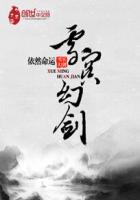The ranchman deserves to be correctly judged by his true character and not by any false standard that is artfully designed to misrepresent him or to unjustly bring him into contempt. He may have a rough exterior, not intending to pose in a model fashion plate, but in real life where he is tried there is found under his coarse garb a heart that is honest and true which responds with sympathy and kindness for anyone in distress; and his generosity and hospitality are proverbial and stand without a rival. Men from every position in life, including college graduates and professional men, are engaged in ranching and whoever takes them to be a lot of toughs and ignoramuses is egregiously mistaken.
The strength, virtue and intelligence of the nation is found in its large middle class of laboring people that is largely composed of farmers and mechanics, men who work with their hands and live natural lives and are so busy in some useful occupation that they have no time to think of mischief. In this favored land of ******* all of our great men have been of the common people and struggled up from some humble position. A life of toil may seem to be hard, but it conforms to nature and natural laws and favors the development of the best that is in man; and he who shirks toil misses his opportunity. Whatever tends to wean men from work only weakens them. Luxury and indolence travel on the downward road of degeneracy. They may make pleasant temporary indulgence, but are fatal to ultimate success.
Locomotion on a ranch consists almost entirely of horseback riding as walking is too slow and tiresome and wheeled conveyance is often inconvenient or impossible for cross-country driving.
When the ranchman mounts his horse in the morning to make his daily rounds he has a clear field before him. He is "monarch of all he surveys" and practically owns the earth, since his neighbors live many miles away and his road leads in any direction clear to the horizon.
The average ranch is not intended to furnish luxuries, but to serve the best interests of the business in hand, that of growing cattle. It is usually a "stag camp" composed entirely of men who occupy a rude cabin near some convenient spring or stream of water, where they keep house in ranch style and live after a fashion. No money is ever expended in unnecessary improvements, but every dollar spent in repairs is put where it will do the most good. The house furnishings are all of the plainest kind and intended to meet only present necessities. The larder is not supplied with luxuries nor is the cuisine prolific of dainties, but there is always on hand a supply of the necessaries of life.
Every man has his particular work to perform, but unless it be on some large ranch where the force of men employed is sufficiently large to require the services of a chef, he is also expected to assist in keeping house. It is an unwritten law of the ranch that everybody on the place must share in this work and if anyone shirks his duty he must either promptly mend his ways or else quit his job. It is seldom, however, that this rule has to be enforced, as the necessities of the case require that every man shall be able to prepare a meal as he is liable to be left alone for days or weeks at a time when he must either cook or starve.
The equipment of the cowboy is his horse and reata. They are his constant companions and serve his every purpose. His work includes much hard riding, which he greatly enjoys if no accident befalls him. But dashing on in heedless speed while rounding up cattle he is ever liable to mishaps, as his horse, although sure footed, may at any time step into a prairie dogs' hole or stumble on a loose rock that is liable to throw both horse and rider to the ground in a heap. He is, indeed, fortunate if he escapes unhurt, or only receives a few bruises and not a fractured bone or broken neck.
His work consists in riding over the range and marking the condition of the cattle; line riding to prevent the stock from straying; looking after the springs and water holes and keeping them clean; branding calves, gathering steers for market and assisting in the general work of the round-up. Every day has its duty and every season its particular work, yet there are times of considerable leisure during the year. After his day's work is done he repairs to the ranch house, or to some outlying camp, whichever happens to be nearest when night overtakes him, for every large ranch has one or more such camps posted at some convenient point that furnishes temporary shelter and refreshment, where he rests and eats his frugal meal with a relish that only health and rough riding can give.
If he is at the home ranch in winter he spends the long evenings before an open hearth fire of blazing logs and by the light of the fire and the doubtful aid of a tallow dip lounges the hours away in reading and cogitation; or, if in the company of congenial companions, engages in conversation and pleasantry or any amusement that the party may select. At an early hour he turns in for the night and after a sound and refreshing sleep is up and out with the dawn. After breakfast he mounts his horse and in his striking and characteristic costume of broad sombrero, blue flannel shirt, fringed chaperejos and jingling spurs he rides forth to his work a perfect type of the gallant caballero.















